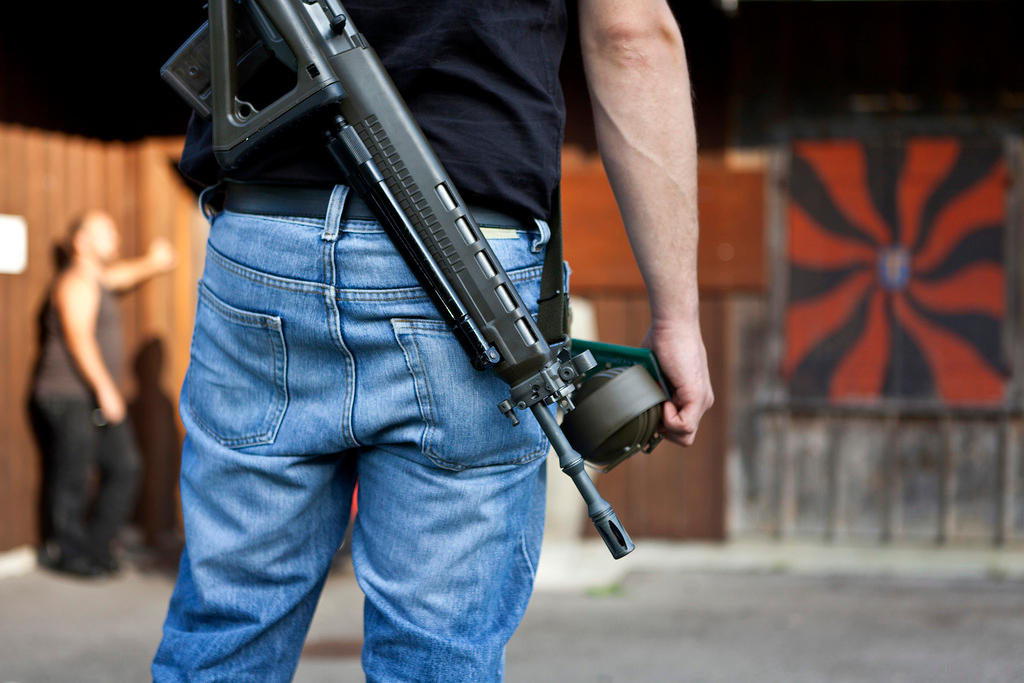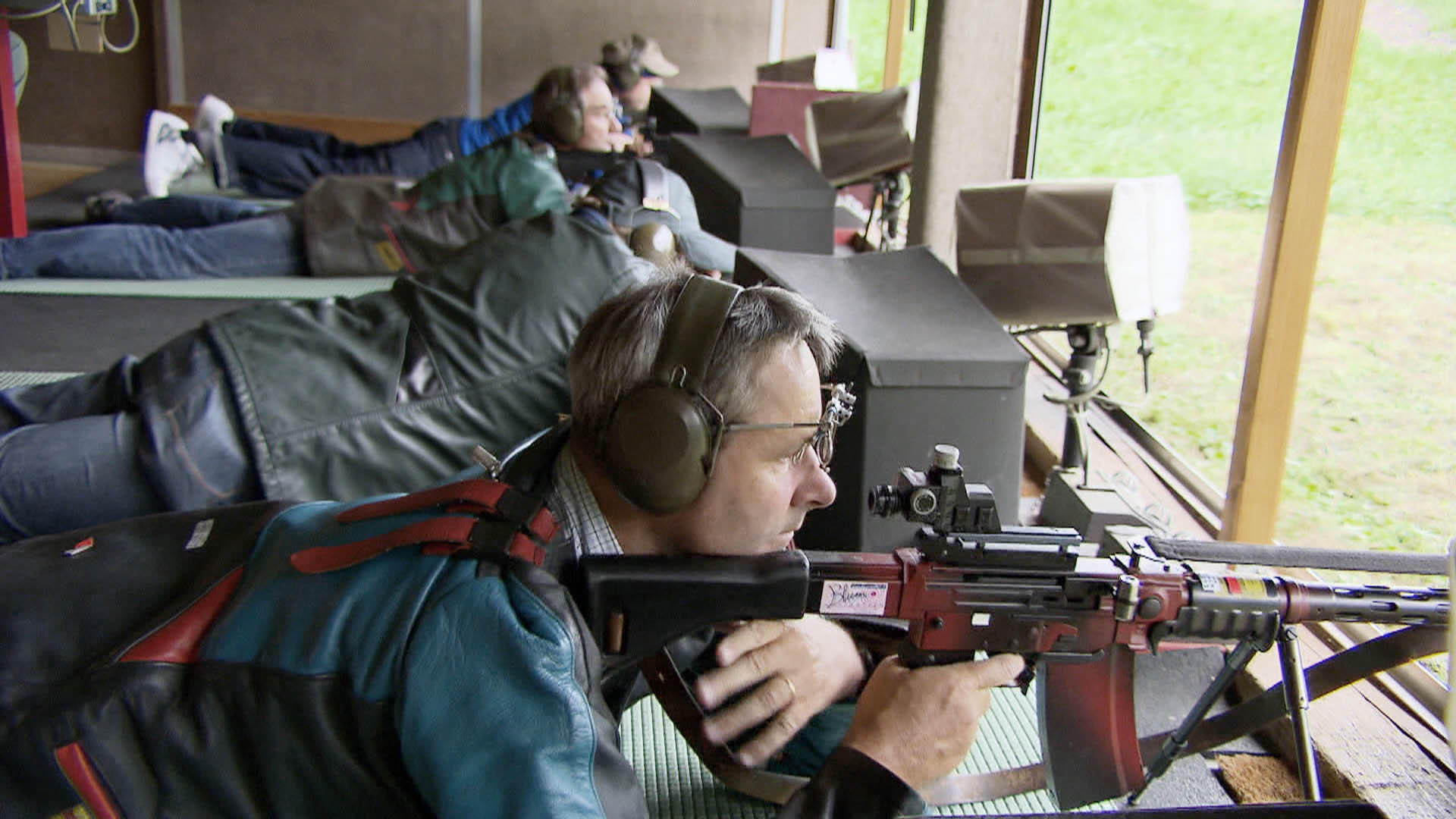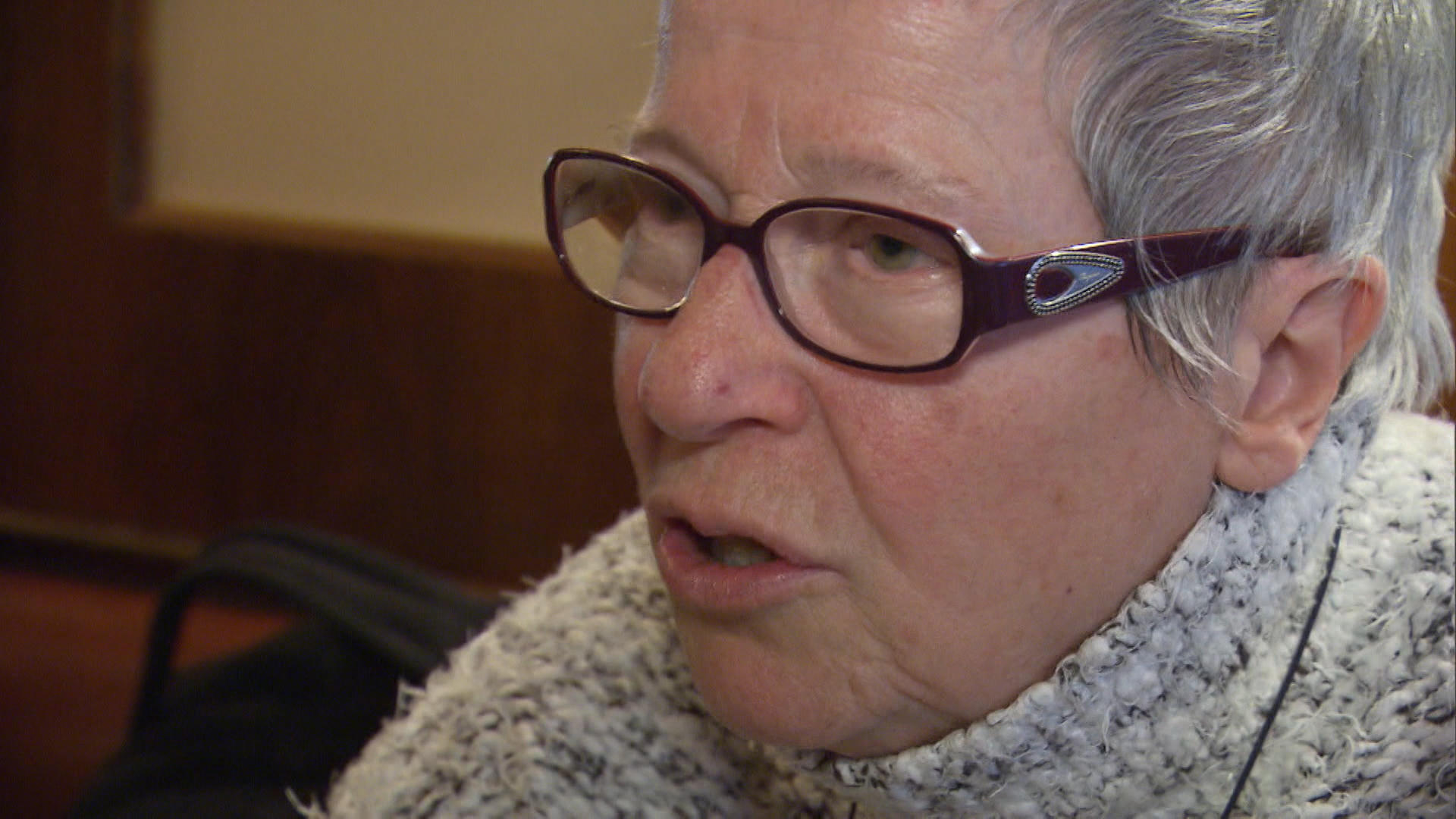Poll shows gun lobby faces uphill battle

A reform of the Swiss gun law to conform to European Union regulations stands a good chance of winning approval in a referendum next month, while opinion about a proposed overhaul of the corporate tax system remains open, according to pollsters.
Opponents of the amended gun law lag more than 30 percentage points behind those in favour, and chances of catching up are slim, an opinion poll published on Friday has found.
An unusually small percentage of respondents to the poll said they are as yet undecided.
However, a parliamentary decision to overhaul the corporate tax law while granting extra funding to the state old age pension scheme is much more contested.
Here, despite a 17% lead for its supporters (see chart), the outcome of the vote still looks uncertain, say experts from the GfS Bern research instituteExternal link, which carried out the poll on behalf of the Swiss Broadcasting Corporation – swissinfo.ch’s parent company.
Taxing questions
Under pressure from the EU and OECD, the government and parliament want to remove tax privileges for certain – often foreign – firms using Switzerland as a tax haven. Instead, they plan to introduce a more even system of tax breaks based on profits from patents and deductions for investment in research and development.
At the same time, the proposal foresees a CHF2 billion ($2 billion) payment to the ailing old age pension system.
Parliament approved the controversial package last year, following a popular rejection of a similar corporate tax reform in a nationwide vote two years ago. But in January political activists and trade unions handed in the 50,000 signatures needed to force a referendum.
Opposition to the reform comes from the right and the left, but both political sides are split, and it is not clear for pollsters whether the potential for a protest vote is big enough to reject the law at the ballot box.
“In our poll, people said they dislike the idea of linking two political issues in a vote. But they trust in the government and parliament,” said Lukas Golder, political scientist and co-director of GfS Bern.
He says the prospect of a boost to the pension scheme seems to have the upper hand, particularly among older voters, over concerns about drops in tax revenue at the expense of regular taxpayers, and the alleged “undemocratic” linkage of tax and social security issues.
But Golder believes there is still enough time to target voters without a clear party affiliation, setting up additional campaign committees at a local level to build up opposition against the reform package.
“A decisive factor will be to what extent both opponents and supporters will be able to engage their grassroots,” he says. At the moment, there are no indications of a broader campaign from the left or the right and opposition in urban regions appears to be weaker than ahead of the 2017 corporate tax vote.
Traditional patterns
The referendum against the reform of the Swiss gun law pits conservative groups, notably the right-wing Swiss People’s Party, rifle associations and hunters, against all other major parties, parliament and the government.
Supporters of the law say that the government has reached a good compromise with the EU, guaranteeing the right of citizens to keep firearms.
They also reckon that maintaining membership of a major European database for security and border management is paramount to combat crime and Switzerland could be barred from access to the Schengen Information System if voters refuse to bring Swiss gun law in line with EU regulations.
Opponents, however, argue Switzerland’s gun tradition and its independence from the EU is at risk in the vote on May 19. Click here for more background on the gun law reform.
Edward Weber, political scientist at the GfS Bern institute, sees only very limited scope for a major swing in favour of the conservative opponents of the law.
“Supporters already have a comfortable lead at the beginning of the main campaign,” he says.
Weber points out that the gun lobby keeps a high profile on social media and it has been easy for the rifle associations to drum up support for the collection of the necessary signatures to force a referendum.
Nevertheless, it appears highly unlikely that the political right can convince more than a third of voters to reject the amended gun law, according to pollsters.
“The referendum committee would be well advised to keep up the spirits of the grassroots,” says Golder. “It has to try to prevent people from becoming demotivated.”
Pollsters interviewed 5,924 Swiss citizens from all language regions across the country for the first of two nationwide surveys.
The survey is based on online responses as well as telephone interviews, both with fixed line and mobile phone users, and was carried out from March 25 to April 4.
The margin of error is 2.9%.
The poll was commissioned by the Swiss Broadcasting Corporation (SBC), swissinfo.ch’s parent company, and carried out by the GfS Bern research institute.

In compliance with the JTI standards
More: SWI swissinfo.ch certified by the Journalism Trust Initiative








You can find an overview of ongoing debates with our journalists here. Please join us!
If you want to start a conversation about a topic raised in this article or want to report factual errors, email us at english@swissinfo.ch.